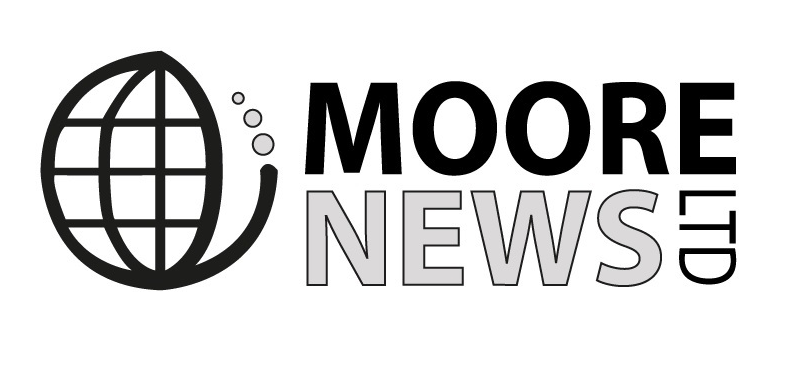The words they use; when they use them and how they're used can make the difference for small businesses between a one-off job, repeat work and no work at all.
But in the current climate, where competition for contracts is fierce, the small trader's focus should also be on the 'no-nos' - what to AVOID saying.
Whether on the phone or face-to face, drop a clanger just before you were about to receive a commission, or commit a faux pas in the bidding stage, and your chance of winning the work can be lost forever.
Moore News spoke with editorial, PR, marketing and design businesses to help establish twelve things NOT to say to a new lead or prospective client.
1. "Yes, Yes, Yes - I can cater for ALL your needs."
Nobody likes a 'yes-man.' And no matter how tempting the fee, avoid always saying ‘yes’ to every part of the project when all you have is its outline, says Sasha Kader, the founder and managing director of Sakr Design.
Even after careful consideration of the full project-brief, shy away from the all encompassing - 'Yes I can do everything your business wants.' Those 'wants' may change or evolve with the project, but all the client will remember is you promising to take care of their needs entirely.
Kader also says suppliers with a niche offering should be comfortable to show themselves as specialists first, and generalists second.
It follows that a specialist who shows up on a project, or pitch, claiming to have a solution for every problem will make the client doubt just how specialised the supplier actually is.
Worst case scenario is the client will see right through the overzealous approach, "lose trust in you and even buy something you never actually wanted to sell," warns Kader.
2. "That shouldn't take long; I can do it by then."
Never say "Yes, that bit of the project looks easy, I'll be able to finish it by then" if you don't know, in fact, that you can, advises Gill Taylor, a marketing and PR consultant to SMEs. The client will take such a statement to mean that you can definitely deliver by their suggested date.
"I always work on the 'under promise, over deliver' approach -" Taylor explains, which is a mantra that speakers of the statement (1), above, should also remember.
So, "ask for more time if you think you might need it - but then deliver in the timescales that they originally requested," she says.
3. "So what do I get as expenses?"
If there are certain expenses that you can bill the client for, or certain costs related to travel that may entitle you to tax relief, know that the right time to ask about these is not initially. Invariably, your accountant is likely to be a better source of information than your client.
Either way, such allowances will normally be relayed to you in good time. Avoid the mistake that one newly hired PR assistant made, when her first query to her fellow members of a conference team was to ask how the phone system worked, and what number she'd need for an outside line to call her boyfriend. It seemed even more awkward as the team had just heard that the cost of certain calls would be covered by the organisers.
"Within minutes she was on the phone to someone making social arrangements," remembered flabbergasted team member Rona Levin, a PR and Communications consultant. "Not the start that anyone in their right mind wants to be remembered for."
4. "I can start whenever; I'm not busy."
Of course you want to sound accommodating and flexible, but utter the above statement and the customer will wonder why you're not busy, warns Gill Hunt, managing director of Skillfair, an e-marketplace for small business contracts.
"It's much better to say you're terribly busy but could squeeze in a meeting on Friday,” she said, “even if it's not entirely true."
5. "I've pitched enough. Make up your mind."
An editorial supplier put the death of his proposed story to a publisher down to him getting stroppy about how much detail the editor wanted in his pitch.
"They kept on coming back to me for more and more information," said Dr Richard Willis, a published author, recalling his early days as a columnist. "I said to the editor at one point, 'I think that the time has come where I should not be expected to provide any further information about the piece I'm going to write.'"
What followed was an unhappy and unforgiving editor, a subsequent apology from a red-faced Willis and, worst of all for both parties, no commission.
6. "No I can't possibly work then; that's when I meditate."
Making clear to the client from the outset that you can't work certain days because you will be walking the dog, baking a cake, meditating or doing domestic chores is a mistake made by too many flexible workers and home-based businesses.
"It may well actually be OK with the client," Skillfair reflected, "but they really don't need to know about it until after they've decided you're the one to hire or commission."
7. "Yup tot-up costs later, money's tight for us all."
In the current climate, companies will be agonising over their bottom line, although they may give a less concerning reason to delay setting costs and payment terms. The financial director being on holiday is a classic.
But pricing and charging are key for small businesses, and with these issues "there should be no grey areas whatsoever," said Taylor, who has a string of successful start-ups under her belt.
"Always make sure you have your costs 'on the table' before starting work," she advised, "especially where you know that a project is probably going to take longer than a client might expect." One-person suppliers, she urged, should never agree with or say 'I'll get the project under way and will cost it up later."
And blurting out the related, "Don't worry about your payment terms being unavailable, we can sort it later" is equally unwise.
"Don't say [that], as you might find out later that their standard [time to pay] is 90 days - and as a small company that could cause real issues," said Taylor. "To avoid this problem, send every new client a set of terms and conditions which include your payment terms."
8. "I'm the expert; any idea how I can use my expertise?"
This howler is too often heard from niche suppliers approaching prospective clients for the first time.
Specialist writers approaching commissioning editors are no exception. In fact, the would-be contributor to a publication should always be "as specific as possible" when pitching stories or ideas, which should be entirely their own creation, not the customer's, says Willis. He says a potential contributor to a title must never, never say: "I'm an expert in reporting on 'X', can you suggest what I can write about on the subject of X?"
9. "Do it my way; I'm the expert..."
For Skillfair, small business suppliers who say they know best, and that the project shouldn't be done how the client proposes, is the taboo of "all time," powerful enough to "kill the opportunity stone dead."
"The client has posted a project or made a request for a particular service - and the supplier responds with 'you don't actually need/want that - what you need is something else entirely'," Hunt says.
Here, the supplier is, in effect, saying 'Client, I think you're ignorant and I'm here to tell you that I know better.'"
"You may need to tell the client they're barking up the wrong tree," she reflected, “but try building a rapport before coming straight out with it!"
10. "You'd see my jimjams if we were on Skype."
Employers are well aware that technology has changed how workers operate, so there's no need to prove it.
Contract Marketing Biz's Gill Taylor explained: "When thinking about 'what not to say to clients' my immediate thought is the answer to a question which every client with remote staff asks - or wants to ask - at some point.
"The one about flexible workers and 'at-home' entrepreneurs being able to work in their pyjamas! Yes, we all do it, but no we shouldn't necessarily admit or declare it, even to the friendliest of clients. It just gives the wrong impression."
11. "I once had this hellish client who..."
Bad-mouthing former clients or employers to those you're with now (potentially their replacement) is plainly unprofessional.
Your horror story might be funny and get you a laugh at the time, but ultimately it will make your listeners nervous, and you look bad.
Quite apart from the scary thought that your current client may actually agree with your former client, and disagree with you, it can also make them concerned about becoming the subject of your next anecdote.
Taylor said: "[Later on after you’ve told your tale] in a tense meeting [that you didn't foresee] between you and them, where everything is more formal, you run the risk of the client thinking 'I wonder if this will be his/her next story about an apparently 'bad' client?'"
12. "Once, I was so unprofessional that I..."
Similarly, never recount a tale of when you or your business severely messed up, regardless of how amusing you think you can make it sound. "Lots of us have done it," admitted Taylor, "and sometimes they make great stories - but in the cold light of a sober day, it will definitely undermine your listener's confidence in you; so avoid -- at all costs."



